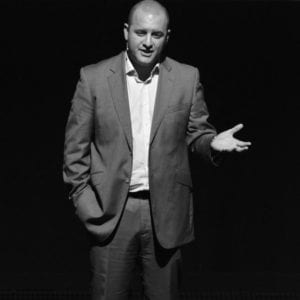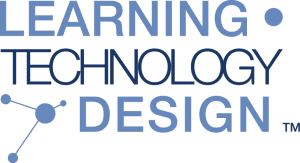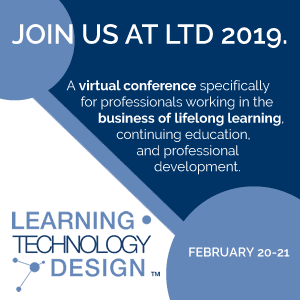As an award-winning speaker and bestselling author of the thought-provoking books, Change: Learn to Love It, Learn to Lead It and Simple Thinking: How to Remove Complexity from Life and Work, Richard Gerver is an inspirational, world-renowned thinker exploring the links between great leadership, human potential, change, and innovation. And because he got his start in education – ultimately serving as a famously transformative school principal – Richard is able to draw on first-hand experiences when it comes to understanding and articulating the connection between leading and learning.
In this episode of the Leading Learning podcast, Celisa talks with Richard about how he views the link between leading and learning, ways simplicity and change impact learning, and the important role of mentoring.
To tune in, just click below. To make sure you catch all of the future episodes, be sure to subscribe by RSS or on iTunes. And, if you like the podcast, be sure to give it a tweet!
Listen to the Show
Read the Show Notes
[00:18] –Our sponsor for this episode is Learning • Technology • Design™ (LTD), our annual virtual conference designed specifically for those who work in the business of lifelong learning, continuing education, and professional development. This will be our fourth time offering LTD, and we know from all the feedback we have received that past attendees have found it a unique and highly valuable experience. Registration is open at ltd.tagoras.com, and through the month of November we are offering reduced pricing as well as the opportunity to extend a complimentary invitation to a colleague or friend who has not attended LTD before.
We are also offering the opportunity to be a Patron for the event, an option that may be of interest to companies that serve learning businesses. You can find out about that by going to ltd.tagoras.com/patron. And we like to spotlight some of our current patrons including Avilar, makers of the Web Mentor LMS, and 360Factor, makers of the Oasis LMS.
[02:08] – A preview of what will be covered in this episode where Celisa interviews award-winning speaker, bestselling author, and world-renowned thinker, Richard Gerver.
[04:12] – Introduction to Richard and some background about his career path. He talks about how he got his start in teaching/education but left his role as a school principal about eleven years ago to pursue the work he’s doing now around leadership and education.
Filling Learning Gaps
[07:56] – Knowing what you know about the challenges and shortcomings of early education, what advice do you have for learning businesses looking to fill the gaps that kids coming through the education system are likely to have as they hit employment age?
Richard says it’s important to acknowledge that schools – and primary education in that school phase – are so much designed around the idea of preparing young people to seek out and then live lives of certainty. We’re trained at a very early age in a certain way to get into jobs that have certain futures—in a fixed job with a fixed job description. Even though schools still do this very effectively, Richard points out that’s where the challenge lies for organizations because one of the things learning organizations realize (just by their nature) is that the world is turning incredibly fast.
So certainty is no longer the norm and what we need are workforces of people that have the ability to adapt to change, collaborate, take risks, and remain relentlessly curious. In so many jurisdictions, schools, and authorities around the world, we still deliver a relatively successful, traditional education, but what we’re still not doing is developing soft skills—something Richard thinks are the hard currency of the 21stcentury. What we need organizations and learning businesses to do more of to fill that skills gap is to really focus on developing those soft skills for new employees.
Similarities in Teaching Kids and Adults
[11:28] – What did you learn about teaching kids that you also apply to teaching adults? What differences and similarities do you see between teaching kids and teaching adults?
Richard shares that where this journey and fascination started for him was with young kids who he says are actually experts in creativity and change. They are incredibly successful as learners, adaptable, and resilient in their worlds, which are changing on (at least) a daily basis. When you think about why young kids learn so successfully, Richard identifies two critical elements of how he thinks we can structure successful learning all the way through life: they need to be experiential and rich in context. One of the things that strikes him about the learning journey for most of us as human beings is we decrease the amount of experiential learning that goes on in our lives.
So the assumption is that the older we get, the more sterile the learning environment becomes, such as in lecture halls in college. And in less inspirational corporate learning environments, you tend to see that same model of sitting people down and talking at them. But one of things we have to understand about the power of potent learning is that it comes from experiential, hands-on experiences that spark the sensory world in which we live.
Link Between Leading and Learning
[15:41] – I’m curious to know how you view the link between leading and learning. I know you’ve actually written about the link between leading and learning connection because I read a blog post you did on the relationship.
Richard discusses how the link is something he felt in the early days as an educator when he was helping young teachers understand that, in essence, what they were doing in classrooms was around leadership as much as it was about the transfer of knowledge. He points out that when you watch great leaders you will see many of the traits that you see in great teachers. It starts with a real acknowledgment that you have to understand the people you’re responsible for and privileged enough to lead. And it’s one of the things he passionately believes about leadership—that the greatest privilege of leadership is that you get to serve people who work for you, a notion that is extraordinarily important both in leadership and as a teacher.
This starts with really understanding the importance of your emotional intelligence and really knowing what makes people tick. Then your role is to aspire to create a real sense of empowerment. In many ways, teachers who do that job properly should eventually find themselves redundant with a class full of students because the students know as much, if not more, than them.
So they keys are an aspiration to genuinely create a climate of empowerment, to commit to wanting to find the strengths of the people that work with/for you, and also to identify weaknesses and areas of concern. And maybe most importantly of all, the parallel lies in your ability to develop trust and confidence because nobody can truly effectively learn anything if they don’t feel confident enough to fail.
 Role of Learning in Seeking Simplicity and Dealing with Complexity
Role of Learning in Seeking Simplicity and Dealing with Complexity
[20:25] – Your most recent book, Simple Thinking: How to Remove Complexity from Life and Work, looks at why we make things so complicated. What role do you see for learning in seeking simplicity or in dealing with complexity?
Richard admits this whole concept for the book came from an experience he had when he went to the original Starbucks and observed the complicated orders of everyone around him. This actually caused him to leave because he started to feel his simple black coffee order wasn’t valid because it was so simple. One of the things he says so many people find daunting through their adult/working lives is that we seem to increasingly believe that things have to be complex in order to be valid. This causes people not to speak up for fear of not saying the “right” thing.
But what we need to realize is that so often we talk ourselves out of the right decision because it’s so straightforward and simple. As we get older, we begin not to trust our own instincts and we start trusting something because it sounds clever or more complex.
Richard talks about his experience meeting Barry Barish (the 2017 Nobel Prize winner for physics) and that he asked him about how he went about recruiting the team of scientists who were working with him on gravitational waves (what eventually led him to the Nobel Prize). Barry shared that something important to him was their ability to ask daft questions because the problem with so many scientists is they try and complicate everything and he knew the greatest lines of research they were engaged in would come from people who could ask questions that most scientists would laugh at. Richard says it’s such an important part of how we as adults regain our confidence as learners and our confidence in our own instincts and knowledge.
[25:45] – A further discussion about how simplicity can help learners gain confidence.
Richard highlights an example of this from when he took over a school that had been in decline but noted that the nature of their meetings had always been about really complex concepts. This made teachers feel alienated and they lacked confidence in their own professional ability and instincts. Richard says he used a simple question in their first major faculty meeting, which resulted in catalyzing and extraordinary conversation.
So for anyone engaged in stimulating education, one of our first challenges is to make sure that the adults we’re working with realize that education doesn’t have to be an exercise in deepening complexity. And actually some of the greatest learning that occurs in adult environments and learning businesses is deconstructing the myth of complexity and helping people understand that so much of how we need to think is based on our instinct and simplification, not on complexity.
Relationship Between Change and Learning
[29:55] – In Change: Learn to Love It, Learn to Lead It, you address the fact that the pace of change is greater than ever. What do you see as the relationship between change and learning?
Richard explains that it’s about the perception and experience of change that can then help define the experience and feelings around learning. So much of our lives in our business environments feel reactive. But at a very young age (five and under), so much of our lives are proactive because we’re exploring things that interest us and our curiosity is the driver to our learning, development, and lives. Yet as we get older, increasingly everything becomes reactive. The interesting thing about the perception of the word “change”
Richard says, is that people are often reflexively negative about it because they are thinking about what they will need to react to and/or how much more they will have to do. The same is true for learning when it’s associated with that kind of climate because most of the learning we’re engaged in at that point is how we can learn to react to things and situations that we find ourselves in professionally. But nobody is frightened of change when they feel in control of it.
Richard emphasizes that it’s really important for organizations to find space and time for change to feel that it’s proactive, people are in control of it, and they have the opportunity to genuinely dive into something new that isn’t just a reflex or response to something that’s already happening. One of the things he loves about what’s going on in some of the big new tech businesses is how they encourage people to take classes to learn something new – whether it’s directly related to their job or not – with the belief that the stimulation of those experiences will actually drive new curiosity and thinking back at their jobs.
We need to create that kind of opportunity, promise, and guarantee and if we can find a percentage of the working week for everybody that feels like their involved in action research and genuine exploration, we’ll see the perception around change begin to change. And the perception around learning starts to feel far more constructive with more people who will want to buy into it.
Role of Mentors in Adult Lifelong Learning
[36:11] – You’ve described Sir Ken Robinson as a friend and mentor. And what a wonderful thinker and person to have influencing your life and career. What do you see as the role of mentors in adult lifelong learning? Is it something to look at systematizing or providing more of?
Richard discusses how the role of mentors isn’t to keep you in your safe place or to stroke your ego—he actually thinks mentorship is about having somebody who you know and trust implicitly who has the capability of pushing/stretching/challenging you—this is what Ken has done for him throughout his career.
He believes that all of us need somebody outside of our family and friendship group who can provide that catalyst to drive us to at least challenge our own thinking/behaviors/context and to ask questions of what we’re doing so that we remain curious. Where we can (if we’re lucky enough), Richard believes we should all have the opportunity to access mentorship. What he doesn’t think we should do is construct mentors because they happen to be our superior in a business or someone who is like-minded to us or comes from a similar background.
[40:42] – I know I asked in my last question about the possibility of systematizing mentorship, but they may have been dangerous, as one of your mantras is “systems and structures change nothing; people do.” Would you explain what you mean by that, particularly thinking about what that means for our listeners, folks developing and providing learning to adults?
One of the great challenges Richard sees in very traditional, hierarchical organizations is a belief that the people at the top should always find the solutions and strategies for the way we move forward. So what happens is people at the top are constantly coming up with new systems, structures, and processes that are then implemented down. But very few people ever feel a sense of ownership of those processes or understand the context for why those changes and new systems and structures are in place.
Yet the irony is, so often leaders in organizations express frustration that people lower down in the system don’t seem to be engaging and participating in developmental practice. What’s really important to remember is that the only way we’re ever truly going to future-proof our organizations is to create cultures where change is continuous and development is ongoing. He often describes organizations that get this right as places where the change feels as imperceptible as the daily growth of our own children.
We need to invest far more time and energy in helping the people who work with us and for us to become more connected into the idea of their context, roles, purpose, and opportunity to be part of an action research based organization. You can’t do this by launching a new system or structure, it’s actually starting by recalibrating the way people see themselves and see themselves within an organization.
[45:09] – What is one of the most powerful learning experiences you’ve been involved in, as an adult, since finishing your formal education?
Richard talks about the experience he had (that the was the most terrifying) where he was asked to become a non-executive director of a major business where he didn’t feel he had the proper knowledge. His initial reflex was to run but he decided to learn and work to feel more valuable and he talks about the sense of achievement he’s felt in doing this.
[48:57] – How to connect with Richard and/or learn more:
- Books: Change: Learn to Love It, Learn to Lead It and Simple Thinking: How to Remove Complexity from Life and Work
- Website: https://www.richardgerver.com
- Twitter: @richardgerver (Richard encourages people to connect with him)
[49:55] – Wrap-Up
If you are getting value from the Leading Learning podcast, be sure to subscribe by RSS or on iTunes.
We’d also appreciate if you give us a rating on iTunes by going to https://www.leadinglearning.com/itunes. We really appreciate your rating and reviews, and those reviews and ratings also help others interested in the learning business find this podcast.
And we would be grateful if you check out our sponsor for this episode Learning • Technology • Design™ (LTD). Again, this is our annual virtual conference and if you, like most of our Leading Learning listeners, work in the business of lifelong learning, continuing education, and professional development, it is an event not to be missed.
Finally, consider telling others about the podcast. Go to https://www.leadinglearning.com/share to share information about the podcast via Twitter, or send out a message on another channel of your choosing with a link to https://www.leadinglearning.com/podcast.
[51:56] – Sign off
See Also:
- Magnificent Leadership – and Learning – with Sarah Levitt
- Connecting Organizational Culture and Learning with Maddie Grant
- Remarkable Leadership and Learning with Kevin Eikenberry




 Pulling Back the Curtain on LTD 2019
Pulling Back the Curtain on LTD 2019
Leave a Reply